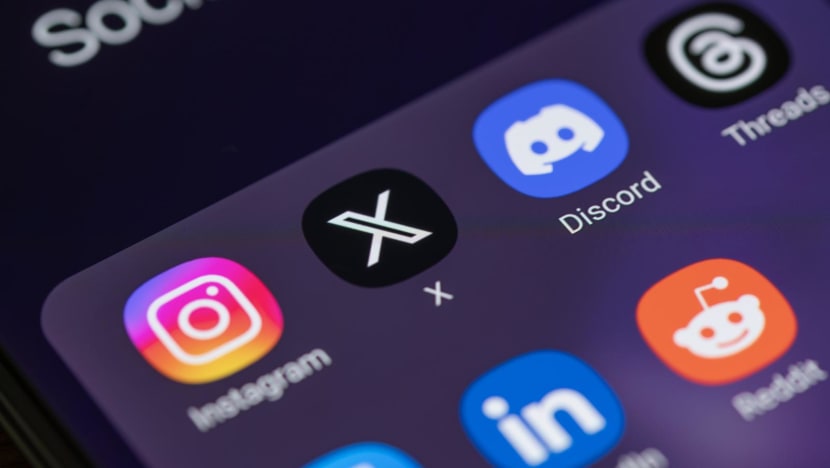Porn allowed on X: Authorities in Southeast Asia react strongly to new rule, stress it violates local laws
Observers told CNA that pornographic content has been available on social media site X “for a long time” and that the uproar was merely in response to the firm’s recent policy move to officially allow such content to be posted.


This audio is generated by an AI tool.
JAKARTA: The move by Elon Musk’s X to formally allow consensual adult and X-rated content to be posted on its platform has drawn criticisms from several Southeast Asian governments, who say that such changes violate its local laws.
And while some of these authorities have threatened to block X - the social media platform formerly known as Twitter - experts whom CNA spoke to say that such threats are merely “lip service” as it means restricting freedom of speech.
Beyond that, the observers added that pornographic content has been available on X “for a long time” and that the uproar was merely in response to X’s recent policy move to officially allow such content to be posted.
"Pornographic content has been around for a long time until now on X. The difference is that in the past X did not explicitly allow its distribution, (and) now it is openly allowed. That's the fact, and X is not blocked," said Mr Ismail Fahmi, founder of Drone Emprit, a tool which monitors conversations on social media.
In a recent update on its website, the San Francisco-based company said users "should be able to create, distribute, and consume material related to sexual themes as long as it is consensually produced and distributed. Sexual expression, whether visual or written, can be a legitimate form of artistic expression".
However, X in its update stressed that such content should not be displayed as profile photos or banners, and users can opt out of viewing such content. It also prohibits content that promotes exploitation, non-consent, objectification, sexualisation or harm to minors, as well as obscene behaviours.
STRONG REACTIONS FROM SOUTHEAST ASIAN GOVERNMENTS
Indonesia’s Communications and Informatics (Kominfo) Minister Budi Arie Setiadi on Wednesday (Jun 5) said X must abide by Indonesian laws and regulations - which among other things prohibit the dissemination of pornographic content - if it does not want to be sanctioned or blocked.
"All X policies that conflict with these rules and other applicable regulations will still be sanctioned, including blocking and/or fines," Mr Budi said, as quoted by CNN Indonesia.
Director General of Public Information and Communication at Kominfo Usman Kansong meanwhile told the news outlet that the prohibition of pornography is also contained in various other laws in Indonesia, including the Anti-Pornography Law and the Criminal Code.
"If X violates rules related to pornography … Kominfo can take action from warning, taking down content to closing access," said Mr Usman.
Meanwhile, Malaysia’s Minister of Communications Fahmi Fadzil said that X’s move “clearly” violated Malaysian laws and thus they were not acceptable.
He told a post-Cabinet meeting press conference on Jun 5 that the Malaysian Communications and Multimedia Commission (MCMC) will convey to X the government’s firm stance towards its latest policy.
"The MCMC chief operating officer Mohd Ali Hanafiah Mohd Yunus will ensure that all platforms, not just X, understand that certain activities, such as online gambling, dissemination of pornographic materials, and other prohibited content as per our national laws, are not tolerated on these platforms, including those happening on X," Mr Fahmi was quoted as saying by Bernama.
Separately, an official from the Philippines’ Department of Information and Communications Technology (DICT) told local media that X’s policy change underscores the importance of having a law that will give local authorities more powers to regulate social media.
“This is a cultural sensitivity issue. We really need to regulate social media because just because a Western brand thinks that this is okay, that doesn't mean it is okay for us,” DICT’s Undersecretary Jeffrey Ian Dy was quoted as saying by ABS-CBN News.
The news outlet also reported that the DICT has been pushing for the regulation of social media platforms instead of an outright ban of such sites that violate local laws.
MERE EMPTY THREATS?
And while observers whom CNA spoke to say that some governments in the region do prohibit the spread of pornographic content online, many do not resort to blocking such sites entirely.
Responding to the Indonesian government’s threat to block X, Mr Enda Nasution - a social media activist who initiated the #BijakBersosmed movement which encourages the use of social media positively - said that such a hard-handed approach is not ideal.
"Blocking is not a solution, but the (Indonesian) government always makes it the first solution,” said Mr Enda.
"This is not the first time (threatening to block social media platforms), previous ministers of Kominfo have also threatened, but so far it's just lip service, no one has ever done it consistently.”
He also questioned whether the Indonesian government would follow through on its threats to block X.
"Elon Musk is the golden boy, does the government have the courage (to block X)?" said Mr Enda, referring to X’s owner, Mr Musk, who has visited the country several times and been warmly welcomed by government officials including President Joko Widodo.
The Indonesian government has hopes that the chief executive officer of SpaceX and Tesla will invest in Indonesia. Just last month, Mr Musk launched SpaceX’s Starlink satellite internet services in the country in a bid to boost connectivity in remote areas.
Seeing the importance of Mr Musk to Indonesia, Mr Bimantoro Kushari - a researcher at Monash Data and Democracy Research Hub - said the Indonesian government must look at the political, diplomatic as well as economic implications if it wants to block X.
"Indonesia has strategic interests with the entry of another Elon Musk company, Starlink. Blocking X is certainly not a good step considering Indonesia's strategic interest in Elon Musk," Mr Bimantoro told CNA, adding that one viable solution is to take down pornographic content on X without blocking the platform.
He added: "If Kominfo wants all sexual content to disappear from the timeline of Indonesian audiences, then it takes extra work for Kominfo to detect these contents. It could be by creating an algorithm that is able to detect sexual content on X or other technical efforts.”
Meanwhile, Assistant Professor Dr Mahyuddin Daud from the Department of Civil Law at International Islamic University Malaysia said that there is “nothing to stop the Malaysian authorities from putting a block on X”, although he opines that this may only be done as a “last resort”.
“I believe that more democratic and self-regulatory measures may be taken to discuss with X to approach the matter in a win-win situation,” he said.
“Perhaps for Muslim countries, X can make a qualification that local laws are to be respected and X's policy on pornography to be excluded in those countries including Malaysia.”
Asst Prof Mahyuddin added that should negotiations with the social media platform ensue, X may consider having a “special country setting” for certain countries like Malaysia that cannot tolerate access to pornography.
“In this regard, Malaysian netizens use of X may not be hindered and users may continue to use X with less worry about being exposed to illegal and harmful material,” he said, adding that recent data from Digital 2024 found that X had 5.71 million users in Malaysia as of early 2024.
ONUS NOT JUST ON AUTHORITIES
According to the We Are Social report, X users in Indonesia as of October 2023 reached 27.5 million people, the fourth largest after the United States, Japan and India.
Mr Ismail, founder of Drone Emprit, said that X is still the leading social media platform for social discourse in Indonesia. Blocking X, according to him, will hurt Indonesians' freedom of speech rights.
"If X is blocked, there will be no more similar platforms to express opinions openly," said Mr Ismail.
Other social media platforms such as TikTok, Instagram and Facebook, Mr Ismail said, cannot be expected to be a means of delivering criticism.
"TikTok is mostly dancing, not much used to convey criticism. Meanwhile, Instagram and Facebook censor many posts, for example, posts related to Palestine," Mr Ismail added.
Mr Enda - the social media activist - said that managing sexual content on X should be left to the wisdom of its users, adding that social media is not like television where the audience has no other choice but to watch whatever is being broadcast.
On the internet, the users play a big role in deciding what content they want to consume.
"Internet users are assumed to be adults who can think and actively choose," said Mr Enda.
He added that X also provides options for users who do not want to be exposed to sexual materials, adding that this goes to show that the consumption of pornographic content is partly the responsibility of social media users and not just the government.
"It's wiser that way (rather than blocking) it," said Mr Enda.
Additional reporting by Aqil Haziq Mahmud




















